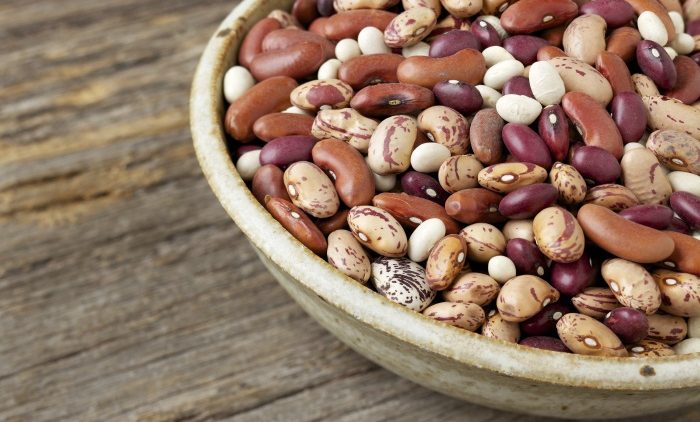
Why should food manufacturers implement plant-based meats into their product line? Consumers have become more health conscious and the demand for plant-based meats is on the rise. Sustainability is also top of mind for consumers and plant-based meats have a positive impact on the environment.
According to the Department of Agriculture, in 2016, Americans, on average, ate 55.6 pounds of beef. Low prices and disposable incomes are responsible for red meat’s appeal to shoppers and diners. But, the market is shifting – 34% of meat-eating Millennials eat four or more vegetarian dinners each week. Shoppers and diners are looking for alternative diet and protein sources, and in turn, demand plant-based meats.
- The Numbers
Whether choosing plant-based food for health purposes, animal welfare concerns, to avoid antibiotics used on farms, or because of environmental consideration, statistics back the meatless meat trend.
About 7.3 million Americans say they are vegetarians. One million of them say they are vegan, meaning they eat no animal products at all. Most (about 80%) of those who say they are vegetarian or vegan are younger than 54. Vegetarianism increased about 600% from 2014 to 2017.
Sustainability
Another issue driving the plant-based meat trend is sustainability. American shoppers want to buy food from brands that have a positive environmental impact, and most are willing to pay more for products that are better for the planet.
Shifting away from animal-based foods could add up to 49% to the global food supply without expanding cropland, and it would reduce carbon emissions, water use and waste byproducts.
The Good Food Institute focuses on clean meat and plant-based alternatives and during its March 2018 panel discussion, Dr. Liz Specht said two questions keep her up at night. “The first one is ‘How are we going to feed almost 10 billion people by the year 2050 and how are we going to do so in a way that doesn’t ransack our planet?’” she said. Companies are looking for ways to feed the world without ravaging the environment.
- What Does the Plant-Based Meats Trend Mean for Food Manufacturers?
Food manufacturers who produce plant-based products are seeing an increase in sales, with meat producers seeing one of the most significant increases. Sales of plant-based meats grew 6% in 2017 compared to a year earlier, according to a study commissioned by Nielsen. Walmart has asked suppliers to provide more meat-free products. Consumers prefer refrigerated meats to frozen meats, with refrigerated growing at 23%. About 2.1% of refrigerated and frozen meats were plant-based, the study said. The study included results from stores like Costco, Whole Foods, grocery stores, drug stores, dollar stores, and military stores.
The challenge for food manufacturers is creating products that taste like meat and have the same texture. Many consumers would give up meat if the vegetable-based products looked and tasted like a burger. Food manufacturers are creating products to fill this need. Here are a few examples.
Impossible Foods
Founded in 2011, Impossible Foods is a Silicon Valley startup with a mission to make the global food system more sustainable. Known for its Impossible Burger, a plant-based patty, that can be found at more than 300 restaurants across the United States. Impossible Burgers require 95% less land and about 1/4 of the water used compared to a beef patty. Impossible Foods’ process also produces about 1/8 of greenhouse gases. The Impossible Burger has fewer calories and fat, more protein, and no cholesterol. With backing from investors such as Google and Bill Gates, Impossible Foods opened its first manufacturing plant in Oakland, California in 2017.
Tyson Foods
Tyson, the largest meat distributor, recognizes the future of food is not grounded in meat, predicting that in 25 years, 20% of meat will consist of non-meat products. Justin Whitmore, chief sustainability officer at Tyson Foods, said his company is thinking about sustainability and has invested in Beyond Meat, a protein company that produces meat products in a laboratory. Today, Beyond Meat’s products are in more than 19,000 stores.
Kraft Foods
Kraft Foods has produced meatless products under the Boca label since 2000. The Kraft Heinz Company has reformulated and rebranded the product to tap into the growing plant-based movement. Sergio Eleuterio, general manager for The Kraft Heinz Company’s Springboard Brands, says the future of this market is between those meat lovers and veggie lovers, what the industry calls flexitarians.
Nestle
In September 2017 Nestle purchased Sweet Earth Foods, putting them in the plant-based foods market. Sweet Earth sells products like “Harmless Ham” and “Benevolent Bacon” that are sold in more than 10,000 stores. “As many as 50% of consumers are now seeking more plant-based foods in their diet and 40% are open to reducing their traditional meat consumption,” said Paul Grimwood, Nestle USA Chairman and CEO.
- What’s next?
“Big food companies are taking notice of the success in this industry,” said Michele Simon, executive director of the Plant Based Foods Association, and it’s likely we’ll continue to see powerhouse brands invest or buy plant-based food brands.
The meat substitutes market is expected to reach more than $6 billion globally by 2023. And while overall food sales declined by 0.2%, sales of plant-based foods increased by 8.1%. As long as Millennials and GenZ demand more meatless products, look for new creations from startups and large brands.
Source : blacksmith applications
